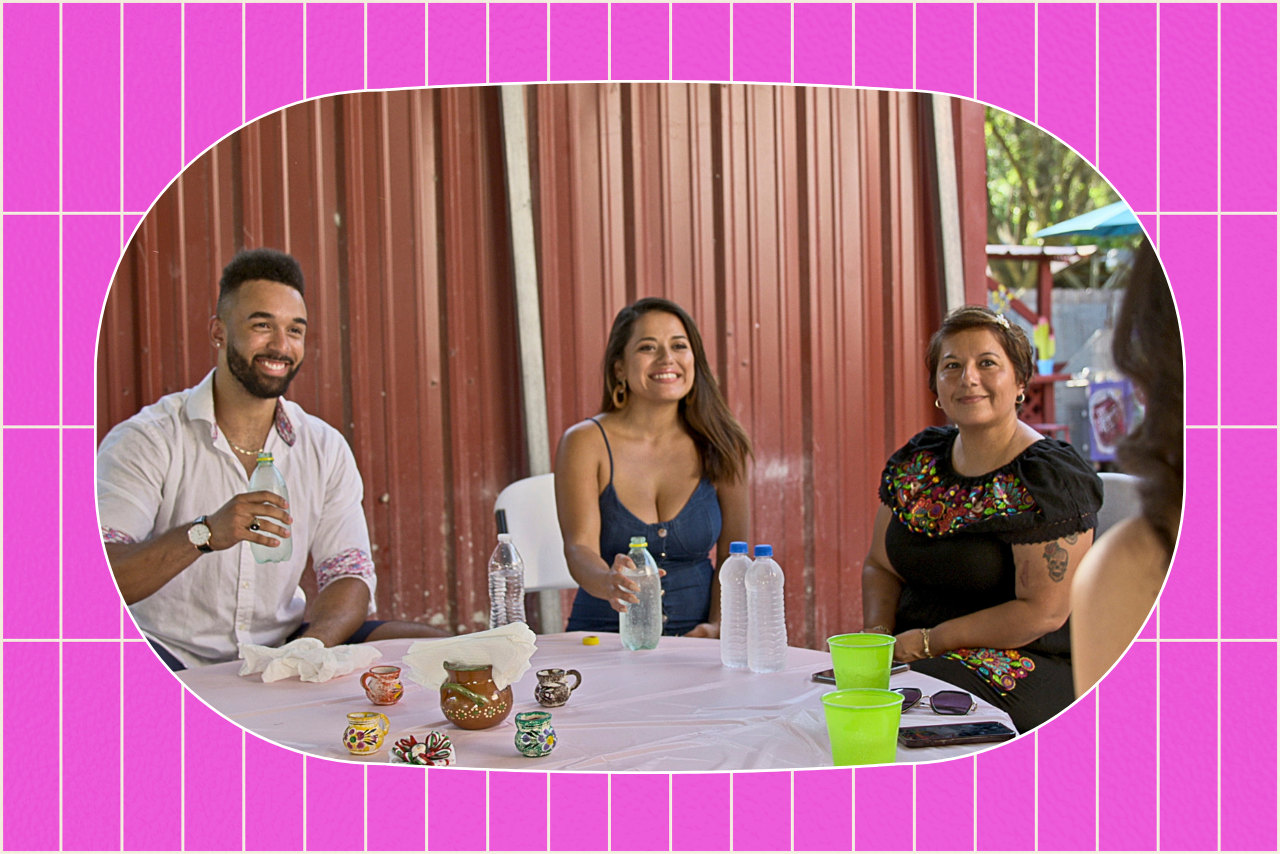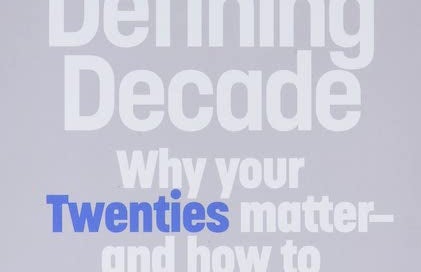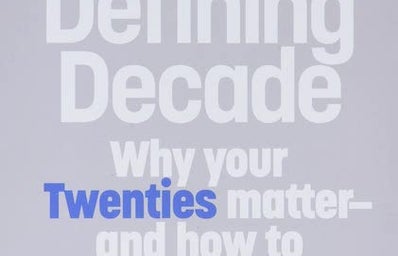As a second-semester junior, the future and the “real world” are within arm’s length. I notice the shift with friends—talking about classes we’re planning on taking are now directly applicable to future jobs, long-term relationships exist more, and internships come with the hope of a full-time offer. Beyond the existential crisis that is entering adulthood, I, like many others, have my purchases influenced by TikTok. This book was no different. The book The Defining Decade: Why Your Twenties Matter— and How to Make the Most of Them Now by Meg Jay, I picked up out of boredom than out of necessity. As a 20-year-old, I didn’t think I needed the information within. Truly, this was an impulsive purchase after being heavily influenced by social media. But then I picked the book up, with the idea that it would be helpful to look at this stuff now, at the beginning of my 20s, then at the end, when it’s too late. I also read it to judge it—was this book worth the read? Are your twenties truly The Defining Decade?

Quick Disclaimer: I read Self-Help Books
But quickly, a note about me. As the title of this section mentions: I am one for self-help books. They can be informative, and I enjoy taking time to learn a little more about myself. However, I recognize that the genre as a whole can be a turn-off for many people.
This book was an exception to many ideas I associate with this writing style. It was better than the typical self-help book. The Defining Decade had enough storylines to be a casual read. While Meg Jay did include complex data, the ratio of science to the narrative was enjoyable to the point where I could enjoy reading this book before bed or when tanning on the quad.
Furthermore, this book didn’t make me feel bad about myself. While many self-help books can come off as preachy, The Defining Decade made me feel empowered. It may be due to the fact that I read it at 20 and am still young, but regardless, if you’re in college, this book should be more of a help than a hindrance. I completed the book feeling more sufficiently aware and better prepared for my future. There was no imminent sense of doom, and no overwhelming boredom, which makes me think this book is a good read for people who actually don’t like self-help books (as well as those who do).

What did I learn?
The Defining Decade covers many vital topics about your twenties, including career growth, relationships, finding yourself, friendships, and more. One fascinating point Meg Jay made sure to emphasize is that your thirties are not your new twenties. Instead, Jay outlined the importance of your 20s as a growing period for development. She discussed how your twenties should be the time when you’re setting the roots for your thirties so that you can feel like an adult. Most importantly, Jay emphasized it was never too early or too late to start. Her book and ideas accentuated longitudinal thinking, something I found helpful.
One thing, in particular, I’m going to highlight is Jay’s points about “identity capital.” The book defines identity capital as “our stock of personal assets. It is how we add value to who we are, and it is what we have to show for how we have spent our time” (Meg Jay, The Defining Decade, page 5). Identity capital can come in many forms—it can be more stereotypical, like a degree from a college or an internship experience. Learning a language, traveling somewhere new, or picking up a different hobby are also more abstract examples of identity capital. In this way, identity capital can transition away from what you have to do and more to what you want to do. By building your identity capital, when you leave college and enter the workforce, you can ascribe self-worth through many different elements of who you are. Identity capital is what makes you unique—it’s what makes you special. And it’s never too early or too late to start.
Was it worth the read?
This book was absolutely worth the read, and I’d spend the $12 again. Do I think other people should read this book? Absolutely. Especially as a college student. This is the type of information I think should be taught to us at this age. The Defining Decade helped organize and categorize my thinking for the future, and I’m now better set up for success because I took the time to read this book. If you’re not sure if this book is for you, I would still recommend you try it. The worst case scenario is you hate it and you can hand it off to a friend to read instead, and the best case scenario is you finish the book feeling better set up for success! Your twenties can be a complicated time where you aren’t sure where you stand or know what you’re doing, and The Defining Decade will help put you on the right track. If you’re interested in getting it, you can find it on amazon here.


